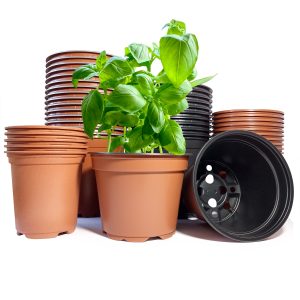Cleaning up the Fruit Trees
Our growing sponsor Chris runs us through how to take expert care of fruit trees and shrubs this winter, including dealing with harmful pests and prevent disease
Spotting Issues & Treatment
February with hopefully most of the severe winter weather behind us, sees the onset of many jobs in the fruit garden. For me it is the month of pruning as it is easier to identify dead and diseased wood as the sap is starting to rise and feeding where I like to replenish the Potassium reserves for the coming season by giving the trees a dressing of Granulated Sulphate of Potash at around 20 grams per square metre. Surface applied, this fertiliser is just simply scattered where it will be washed in by the spring rains.
Late winter is also the best time of year to apply a winter wash to help tackle what can be a menacing pest early in the season for fruit trees – aphids. Populations of aphids explode given favourable conditions at bud burst, whilst a few are acceptable and very beneficial to food chains, large numbers can have a very negative affect on young growth. Last year, I did not do any winter washing, and with the spring being very warm the two usual suspects made an appearance just after my cherries and pears had finished flowering, The Pear Bedstraw Aphid (Drysapsis pyri) and the cherry aphid (Myzus cerasi), and within a couple of weeks the new shoots were completely stunted from their sap sucking activities.


It has to be said that both don’t usually have a detrimental effect on cropping for the forthcoming season but because they cause twisting and stunting of any new growth, future crops which will be borne on those shoots will be very much reduced as new extension growth is severely limited, particularly on pears.
The Pear Bedstraw Aphid over winters as eggs on Pear trees which hatch at bud burst and suck the sap of the new shoots, severe infections will also cause sooty mould, a fungus that lives on the sugary exudates the aphids secrete, this in turn reduces light entering the leaves and in severe cases limits photosynthesis.
Around midsummer the winged aphids will leave the pear trees and live on bedstraws (gallium species) before returning to the pear trees in the autumn to lay overwintering eggs and complete the life cycle.
The Cherry aphid which lives on a whole range of ornamental and culinary cherries has a very similar life cycle even down to the summer vacation on bedstraws!
The purpose of winter washing with products such as Growing Success, Winter Tree Wash is to help break the aphid life cycle by reducing the number of eggs that will hatch in the springtime and thus preventing severe damage to the trees.
The product which is based on vegetable oils is really easy to use you just mix 10ml of concentrate with 90ml of water and apply by a garden sprayer during calm frost free conditions.
It is important at the time of application that the tree is fully dormant and early February is the ideal time to do this. To ensure all parts of the bark are treated, spray to ‘run off’ using a medium to coarse spray , which is easily achieved with most garden sprayers by lowering the pressure to prevent any fine droplets drifting and not reaching the target.
Over the years I have found that by treating the trees in this way, populations of aphids reduce at the critical time in spring, and I never have to resort to use more harmful insecticides as a few aphids are tolerable and by summer they are gone.


I’m based in Shropshire, and I’ve been a keen gardener since childhood. Throughout my career I have raised plants commercially, landscaped gardens, taught horticulture, built the odd show garden and managed public parks where I helped popularise the use of wildflowers. My passion has always remained with growing fruit and vegetables in my own garden and looking after my rare breed chickens.
Chris

I’m based in Shropshire, and I’ve been a keen gardener since childhood. Throughout my career I have raised plants commercially, landscaped gardens, taught horticulture, built the odd show garden and managed public parks where I helped popularise the use of wildflowers. My passion has always remained with growing fruit and vegetables in my own garden and looking after my rare breed chickens.
Chris
Share This Blog
Featured Products
-

Full/Half Size Cell Pack Inserts | 4-60 Cell
£5.84 – £719.99 Select options This product has multiple variants. The options may be chosen on the product page -

Recycled Plastic Thermoformed Plant Pots | Black & Terracotta Pots
£5.89 – £125.99 Select options This product has multiple variants. The options may be chosen on the product page -

Bumper Crop Tree, Shrub & Hedge Fertiliser
£5.99 – £49.99 Select options This product has multiple variants. The options may be chosen on the product page -

Clear Tree Guards | 18″ & 24″ Sizes | Optional Canes & Ties
£6.59 – £304.99 Select options This product has multiple variants. The options may be chosen on the product page -

Tree & Shrub Defender+ | Wind, Rabbit & Hare Guards / Shelters
£9.99 – £2,279.99 Select options This product has multiple variants. The options may be chosen on the product page -

Propagators | Ready To Go Germination Kits
£9.59 – £13.39 Select options This product has multiple variants. The options may be chosen on the product page







